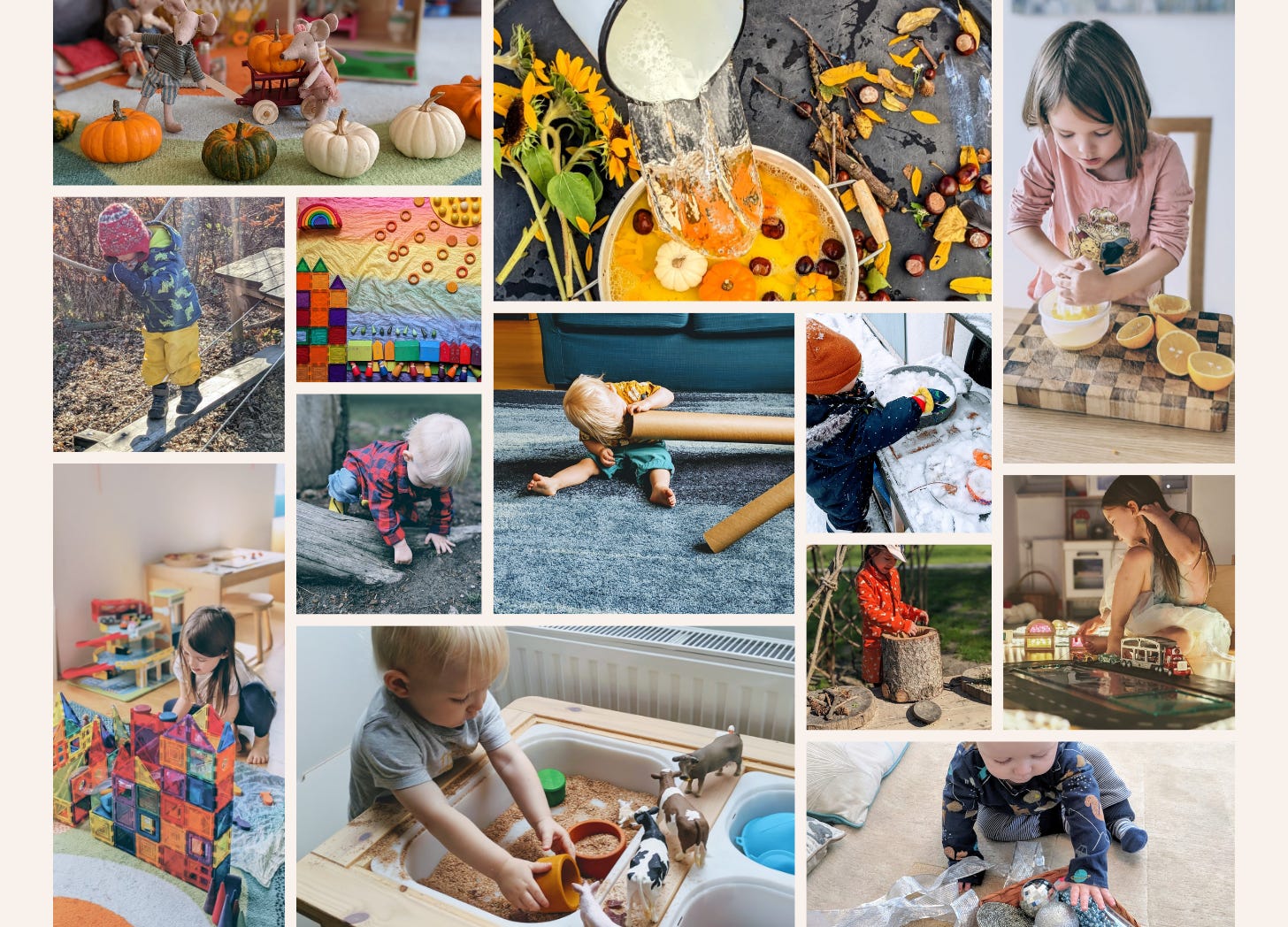4 Reasons Your Child Isn't Playing Independently
what to do when you feel like a 24/7 entertainer
When it comes to play, one of the questions I get asked the most is, 'Why won't my child play independently?' It is a real source of anxiety and concern because it also adds to the parental load.
Before we begin, It's worth noting how incredibly short independent play times really are.
On average, it's just 2-5 minutes per year of age:
Whilst it’s helpful to know how short independent playtime can be, it also doesn’t offer heaps of reassurance when all you really want to do is drink your coffee in peace.
So what helps and what hinders independent play?
1. Lack of open-ended toys in the play space
One of the reasons your child might not be playing independently is because they are a little bored by their toys! Try to ensure that at least 70% of the toys in the play area are open-ended. Simply put, this means toys that can be played with in multiple ways.
These are the toys that can grow with your child too - wooden blocks are a good example here as there are just so many possibilities for play!
Try setting up a play invitation with 2-3 of your child's toys to help prompt them to play. If your child isn't used to playing independently then this is a good way to show them new ways to play.
This can be as simple as adding some wooden blocks to an acrylic mirror or beginning a train track.
2. There isn't enough time dedicated to free-play
One of the common problems with modern parenting is the misconception that we have to turn ourselves into 24/7 child entertainers in order to be 'good' parents.
Instagram and Pinterest can certainly help us to get ideas and inspiration for our children, but it can also make us feel like we always have to be doing something WITH our children. In reality, playing independently (and without us) is crucial for a child’s development.
Establishing a simple daily rhythm with plenty of opportunities for free, independent play will help to get your child playing independently. This is because they will begin to understand that they will be able to really get into play instead of being interrupted to go and do a planned activity!
3. You give too many directions on how they should play
Is it good to sit down and play with your child? Yes, absolutely!
However, if you are constantly interrupting the flow of play and telling them how they should do it, they are going to be put off from playing independently.
A much better approach in the toddler years is to sit side-by-side. Grab some toys from the play space and do your own thing: they may join in, they might not!
Another easy switch you can make is to keep planned activities really simple and open-ended. I post daily activities over on Pinterest - come and follow me there.
4. There has been a change in routine and they need reassurance
Another reason that you child might not be playing independently could be as simple as a change of routine. This happened to us when my daughter went back to school after the end of lockdown. My youngest son (then three 3) struggled with the loss of his play buddy.
Here's what I did to get him playing independently again:
I made sure that they play space primarily catered to his interests and developmental stage
I adopted a new daily rhythm so he got used to the times I could play and when I needed to get on with other tasks
I set up play invitations and sat with him (side by side) before going to make a cup of tea. I then started to extend this to longer tasks - fast-forward a few weeks and I was able to work whilst he plays independently in the background!
Plenty of outdoor time. My youngest is a very active child, so we spend a lot of time running around at the park or in the garden.




